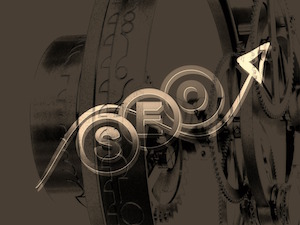Did you know search engines have the ability to make your website disappear from its search results?
One day in your digital life, you’re getting a nice little trickle of traffic to a few of your posts. No, it’s nothing major, but it grows with every new post you publish, and you can see Google becoming a major source of traffic for you in the future.
But then it stops.
Poof, every single post and page of your blog disappears from Google. No warning, no alarm bells, nothing. You’re just gone, like you never even existed.
And the worst part?
You don’t even know why. It just feels like the biggest, baddest bully on the Internet decided to knock the crap out of you, leaving you whimpering and bleeding, wondering what on earth you did wrong.
But luckily, you can actually prevent that from happening by acquainting yourself with a mammoth digital beast, called SEO. Yes, you’ve heard about it before. You know that it stands for Search Engine Optimisation. You know that the better your SEO, the higher you’re most likely to rank on search engines. But, I’m afraid that’s barely enough to make you an SEO genius. Hardly!
So, whether you’ve just got a new website and want to know the SEO basics, or you’re still getting your head wrapped around its complexity, here are a few common questions that most people don’t know, or are too embarrassed to ask.
-
What is SEO anyway?
We know it’s about optimisation and natural search engine results but what exactly is SEO? Search Engine Optimisation (SEO) involves a variety of components and techniques that help your website rank higher in organic search results for major search engines like Google and Yahoo. By ranking higher; your site, brand, products and services become more visible to the people who are looking for what you offer.
Search engines use different variables to determine whether your site is of a high quality or not. Some of these can include the structure of your website, user behaviour, internal and external linking, site speed, mobile-friendliness, relevant keywords (without overstuffing), image and title tags and how appropriate and fresh your content is.
-
What’s the difference between SEO and paid search?
SEO works with organic results, results that appear naturally in search engines for free. These results are based on algorithms major search engines like Google have. Paid search on the other hand is exactly that – paying to see your website and brand in the search results first.
When you ‘Google’ something, you’ll notice the first few results (usually one to three) will have a yellow ‘ad’ notice next to the results. These are part of a paid search campaign that advertisers have paid to set up and once clicked on, will convert their end. Under these paid results will be the search engine results that appear naturally from well-devised SEO.
-
How do I know whether I’m using the right number of keywords on a page?
Unfortunately, I can’t tell you an exact number that is the “right” number of keywords on a page, mostly because that’s the wrong way to think about keyword optimisation. There’s no keyword density you should be aiming for – in fact, using a keyword too many times can result in penalisation due to ‘keyword stuffing’. Just keep the reader in mind, and only use keywords when you need to. You’ll find enough natural opportunities to include keywords that you won’t even have to worry about reaching an arbitrary number.
-
What’s a good goal to set for your SEO?
When you think about your goal for SEO, don’t just think about the top of the funnel and how many more visits you’re getting to your website. Think about your full marketing funnel and how much quality traffic you’re getting to your website. Are the people who are finding your website through SEO actually qualified prospects for your business? If not, does it really matter that the traffic to your website has increased? As you create your goals, consider what general traffic vs. quality traffic means to you. Set goals not just based on traffic, but based on the entirety of your marketing funnel.
-
How long does it take to see results from your SEO?
There are a few different factors that will determine how quickly (or slowly) results will come. This list includes, but isn’t limited to:
- How much content you create
- The quality of the content
- How the content resonates with your audience
- If you’re a big or small site with strong or weak domain authority
A large site could possibly see results in a couple of days if a search engine is crawling their site regularly. Smaller sites will most likely take longer because they get crawled less frequently. Wait at least a week, but probably closer to a month, before you consider changing your SEO strategy – a bit longer if you’re brand new to SEO.














